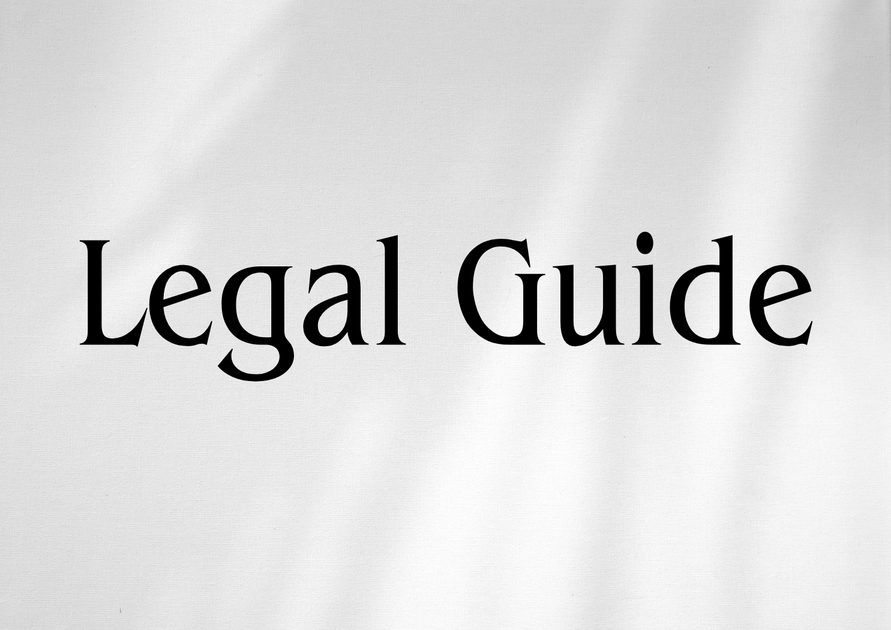Introduction
The United Arab Emirates has rapidly evolved into a global destination for property investors, multinational corporations, and private buyers alike. With dynamic real estate markets in Dubai, Abu Dhabi, Sharjah, and other Emirates, verifying property ownership has become paramount amid the rapid growth and transformation of legal frameworks in the UAE. The regulatory environment receives frequent updates—most recently under Federal Law No. (6) of 2019 and Federal Law No. (8) of 2021—placing an even greater imperative on due diligence when acquiring real estate.
For corporate entities, executives, HR managers entrusted with employee relocations, and discerning private investors, understanding how to verify property ownership before any transaction is critical. Failure to comply with due diligence obligations risks not only financial loss but legal liability, reputational damage, and litigation. This article provides an in-depth, consultancy-grade analysis of UAE property ownership verification, detailing statutory provisions, official processes, compliance strategies, and professional best practices as of 2025.
Whether you are navigating direct purchase, inheriting assets, or investing through a free zone structure, the guidance herein derives from authoritative legal sources—including the Federal Legal Gazette, Department of Land and Property records, and relevant Ministry directives. Our objective is to offer reliable direction that protects your interests and ensures compliance in one of the world’s most dynamic property markets.
Table of Contents
- UAE Property Law Framework and Key 2025 Updates
- The Critical Importance of Verifying Property Ownership
- Relevant Legal Sources and Regulatory Authorities
- Step-by-Step Process to Verify Property Ownership in the UAE
- Common Pitfalls, Compliance Risks, and Legal Remedies
- Comparison: Old Law Versus Recent UAE Law Updates
- Case Studies: Real-World Scenarios of Ownership Disputes and Verifications
- Professional Compliance Checklist and Best Practices
- Key Takeaways and Forward-Looking Recommendations
UAE Property Law Framework and Key 2025 Updates
Foundational Statutes Governing Property Ownership
The foundation of property ownership regulation in the UAE is built upon:
- Federal Law No. (6) of 2019 on Property Ownership
- Federal Law No. (8) of 2021 Regarding the Regulation of Real Estate Brokerage
- Emirate-specific laws, such as Dubai Law No. (7) of 2006 on Real Property Registration
- Cabinet Resolutions and Ministerial Circulars (latest as per the UAE Official Gazette)
These laws set forth the legal structure for property ownership, registration, transfer, and dispute resolution across the Emirates. Since 2019, a notable trend has been the strengthening of digital land registries and the tightening of rules around beneficial ownership disclosures, motivated both by transactional transparency and global anti-money laundering standards.
2025 Legal Updates Incorporating Ownership Verification
Several regulatory updates reshaping the landscape for 2025 and beyond include:
- Enhanced Due Diligence Requirements: Parties must now demonstrate greater rigor in ownership verification, employing not only title deed examination but also beneficiary tracing (Cabinet Resolution No. 58 of 2020).
- Mandatory Digital Registration: All real property transactions must be recorded through official electronic land registry portals (e.g., Dubai REST App, Abu Dhabi TAMM platform).
- Beneficial Ownership Disclosure: Corporates and trusts involved in property transactions must submit detailed beneficial owner declarations (per MoE Guidelines 2021, updated for 2025 compliance).
- Stiffer Penalties: Recent amendments to the Dubai Penal Code increase civil liability and financial penalties for misrepresentation or non-disclosure in property sales (Federal Decree-Law No. (31) of 2021).
The Critical Importance of Verifying Property Ownership
Failure to comprehensively verify property ownership can result in void transactions, title disputes, criminal charges, and loss of capital. Dubai and Abu Dhabi have reported an uptick in property-related litigation traced to insufficient due diligence and fraudulent representation.
Key Risks Associated With Inadequate Verification
- Encumbrances and Liens: Buyers may inherit hidden liabilities including mortgages, charges, or court injunctions if prior encumbrances are undisclosed.
- Fraudulent Transfers: Risk of forged documents or impersonation, leading to severe financial and legal consequences.
- Ownership Disputes: Unclear or disputed title can result in protracted litigation and regulatory intervention, stalling asset deployment and raising costs.
- Legal Non-compliance: Failure to adhere to 2025 due diligence requirements can attract penalties, license suspensions, or blacklisting by authorities.
For corporates, such risks undermine business planning, complicate HR accommodation strategies, and expose boards to personal liability. For private buyers, they may jeopardize life savings and investment security.
Relevant Legal Sources and Regulatory Authorities
| Legal Source | Relevant Provision | Authority |
|---|---|---|
| Federal Law No. (6) of 2019 | Property ownership rights and restrictions | UAE Ministry of Justice |
| Cabinet Resolution No. 58 of 2020 | Beneficial ownership registers | UAE Ministry of Economy |
| Dubai Law No. (7) of 2006 | Land and property registration in Dubai | Dubai Land Department (DLD) |
| Federal Law No. (8) of 2021 | Regulation of real estate brokerage | Federal Legal Gazette |
| Ministerial Guidelines (MoE 2021, 2025 updates) | Compliance on beneficial ownership | UAE Ministry of Economy |
Step-by-Step Process to Verify Property Ownership in the UAE
1. Obtain and Review the Title Deed
All properties in the UAE must be registered with a Land Department or real estate authority. The title deed (Sahifa Al Milkiya) serves as the definitive proof of ownership.
Corporate buyers or their legal representatives should:
- Request the original title deed from the seller.
- Confirm its registration with the relevant Land Department (e.g., DLD, Abu Dhabi Municipality).
- Match property details—plot number, owner, location, and description—against government records.
2. Verify Registration Through the Official Land Registry
- Utilize official portals—like DLD REST or Abu Dhabi’s TAMM—to verify the authenticity of the title deed using the property’s unique identification number.
- Request an official property extract (often available online or over the counter for a small fee).
- For commercial transactions, ensure the registry search encompasses any recent mortgages or liens.
3. confirm the Identity and Authority of the Seller
- For individuals: Validate Emirates ID or passport against the ownership record.
- For companies: Obtain a copy of trade license, attested board resolution, and beneficial ownership report as per Ministry of Economy guidelines.
- If represented by an agent or attorney, scrutinize the Power of Attorney — it must be notarized and within its validity window.
4. Check for Encumbrances, Liens, and Disputes
- Request a No Objection Certificate (NOC) from the developer or homeowners’ association (mandatory for most freehold scenarios).
- Inspect official records for existing mortgages, legal disputes, or tenancy contracts impacting the property.
- For off-plan properties, ensure escrow accounts are compliant with RERA (Dubai) or ADREC (Abu Dhabi) regulations and that the project registration remains valid.
5. Undertake Beneficial Ownership Verification
Effective 2020 and reinforced in Cabinet Resolution No. 58/2020, verifying the ultimate beneficial owner is mandatory in every property transaction involving corporate entities, trusts, or SPVs. Buyers must:
- Request the seller’s beneficial ownership register.
- Ensure up-to-date disclosure with supporting documents filed with the Ministry of Economy.
- For foreign-owned structures, review substance requirements and DTAA (Double Taxation Avoidance Agreements) as relevant.
6. Conduct Onsite Inspection and Due Diligence Checks
- Inspect the physical property to confirm no unregistered tenants or unauthorized alterations.
- Verify that property boundaries correspond to registry plans and municipality maps.
- Engage surveyors or legal consultants for complex or high-value transactions.
7. Ensure Compliance with Payment and Transaction Procedures
- Utilize approved escrow mechanisms for payments (mandatory for off-plan and recommended for all others).
- Register the transaction with the relevant Land Department, submitting all validated documents and declarations as per Federal and local laws.
- Secure a new title deed in the buyer’s name, confirming completion of transfer.
Common Pitfalls, Compliance Risks, and Legal Remedies
Practical Insight: Addressing Real-World Compliance Challenges
Scenario 1: A corporate buyer acquires a Dubai property only to find a third-party mortgage was registered days prior—a result of incomplete registry checks.
Solution: Always cross-confirm with real-time land registry data, not just the physical title deed, to uncover recent or pending encumbrances.
Risk Management Tip: Include a seller warranty and indemnity clause in sale contracts, granting recourse if undisclosed burdens are later found.
Scenario 2: A private investor relying on an unverified agent’s Power of Attorney (PoA) faces a legal challenge when the PoA is found expired.
Solution: Verify and notarize all PoAs, ensuring the authority is current and registered with the Notary Public as per Ministry of Justice guidelines.
Remedial Actions if Ownership or Title is Disputed
- File a complaint with the relevant Land Department (DLD, Abu Dhabi Municipality, etc.), supplying all supporting documentation.
- Initiate civil proceedings under Federal Law No. (6) of 2019 or respective Emirate property laws.
- For fraudulent or criminal acts, report to the local police and seek injunctive relief as per Federal Decree-Law No. (31) of 2021.
- Consult a licensed UAE legal consultant for dispute resolution or property litigation strategies.
Comparison: Old Law Versus Recent UAE Law Updates
| Aspect | Old Law (Pre-2019) | New Law (2019-2025) |
|---|---|---|
| Ownership Verification | Physical title deed, limited digital records | Mandatory digital registry checks, real-time verification |
| Beneficial Ownership | Rarely disclosed or required | Mandatory submission under Cabinet Resolution No. 58/2020 |
| PoA Use | Accepted if notarized, limited verification | Must be current, registered, and substantiated with beneficiary disclosures |
| Encumbrance Checks | Manual inquiry, often overlooked | Compulsory registry inquiry; NOC from developers/associations |
| Transactions | Physical documentation, slower transfer | Mandatory digital/electronic processes, stricter timelines |
| Penalties | Limited financial penalties | Higher fines, civil and criminal liability (per Federal Decree-Law No. 31/2021) |
Case Studies: Real-World Scenarios of Ownership Disputes and Verifications
Case Study 1: Corporate Cross-Border Acquisition
A European conglomerate sought to acquire an industrial asset in Sharjah free zone. The seller’s agent presented an attested PoA, but beneficial ownership was not declared.
Outcome: Ministry of Economy compliance checks exposed undisclosed beneficial owners, voiding the transfer until disclosures were complete.
Lesson: As per 2025 compliance, always demand full beneficial owner registers and confirm updates against Ministry records before closing.
Case Study 2: Off-Plan Apartment Buyer in Dubai
A Dubai resident privately purchased an off-plan apartment based on a developer letter. The buyer failed to register the sale in the DLD digital system.
Outcome: The developer faced bankruptcy and investors without registered interests lost priority claims.
Lesson: Register all off-plan transactions in the developer escrow and the Land Department system to gain statutory protection under Law No. (8) of 2007 (Dubai) and Federal Law No. (6) of 2019.
Visual Suggestion:
Process Flow Diagram: Illustrate the step-by-step journey from initial owner verification, title deed review, registry check, beneficial owner confirmation, to final registration. This can be designed as a clear workflow chart for better engagement with corporate readers.
Professional Compliance Checklist and Best Practices
| Step | Action Required | Legal Reference |
|---|---|---|
| 1 | Obtain original title deed | Federal Law No. (6) of 2019 |
| 2 | Verify registry via official portal | Dubai Law No. (7) of 2006 |
| 3 | Authenticate seller’s identity/authority | Ministry of Justice, MoE guidelines |
| 4 | Check encumbrances and disputes; obtain NOC | Federal Law No. (8) of 2021 |
| 5 | Review beneficial ownership register | Cabinet Resolution No. 58/2020 |
| 6 | Onsite inspection and legal due diligence | Professional standards |
| 7 | Register transfer through digital portal | UAE digital registry guidance (2025 updates) |
Best Practices from a Legal Consultancy Perspective
- Engage a licensed legal consultant to conduct independent due diligence—especially for high-value or cross-border transactions.
- Insist on up-to-date registry extracts, not just physical documents, prior to closing.
- Integrate compliance controls for beneficial ownership disclosures in all property-related corporate policies.
- Utilize approved escrow account mechanisms for all significant payments.
- Structure agreements to include indemnity clauses protecting against latent encumbrances or misrepresentation.
- Monitor regulatory updates affecting property law, engaging ongoing legal advisory for sustained compliance.
Key Takeaways and Forward-Looking Recommendations
The legal and regulatory environment governing property ownership verification in the UAE has never been stricter or more consequential. The convergence of new statutes—strengthened digital registries, enhanced beneficial ownership rules, and stiffer penalties for non-compliance—means that both business and private buyers must adopt a comprehensive, methodical approach to property due diligence. For corporates, integrating property compliance into risk management frameworks is now essential; for individuals, relying solely on agent representations or physical documents is an avoidable risk.
Going forward, robust compliance supported by expert legal consultancy will not only safeguard transactions but facilitate smoother, faster, and more secure property investments in the UAE. As the law evolves into 2025 and beyond, our recommendation is to maintain proactive engagement with updates to the Federal Legal Gazette, always verify through official channels, and treat every transaction as unique—demanding bespoke due diligence tailored to its facts. By doing so, investors and businesses alike can confidently realize opportunities in the UAE’s thriving real estate sector while remaining fully aligned with the highest compliance standards.




